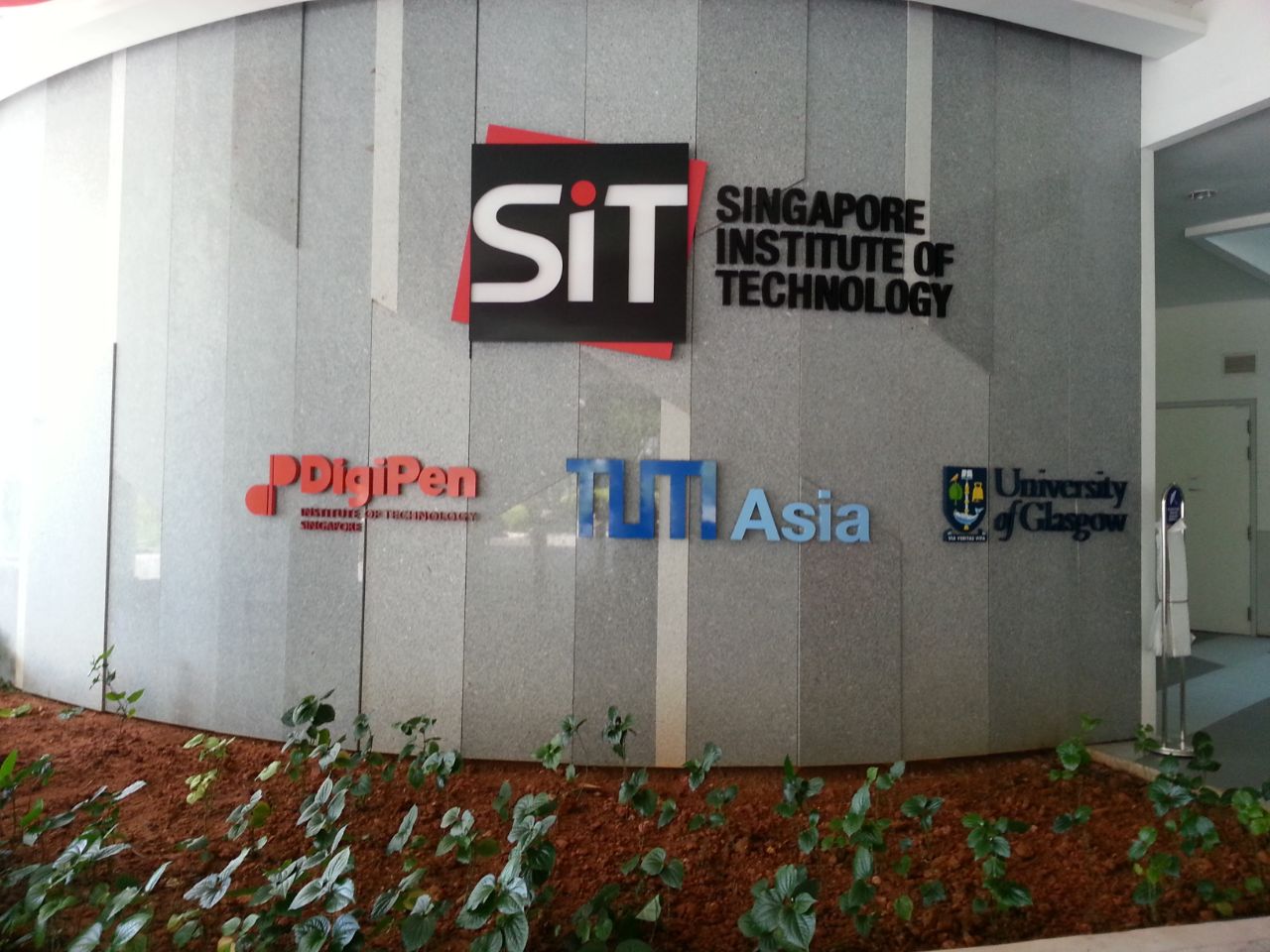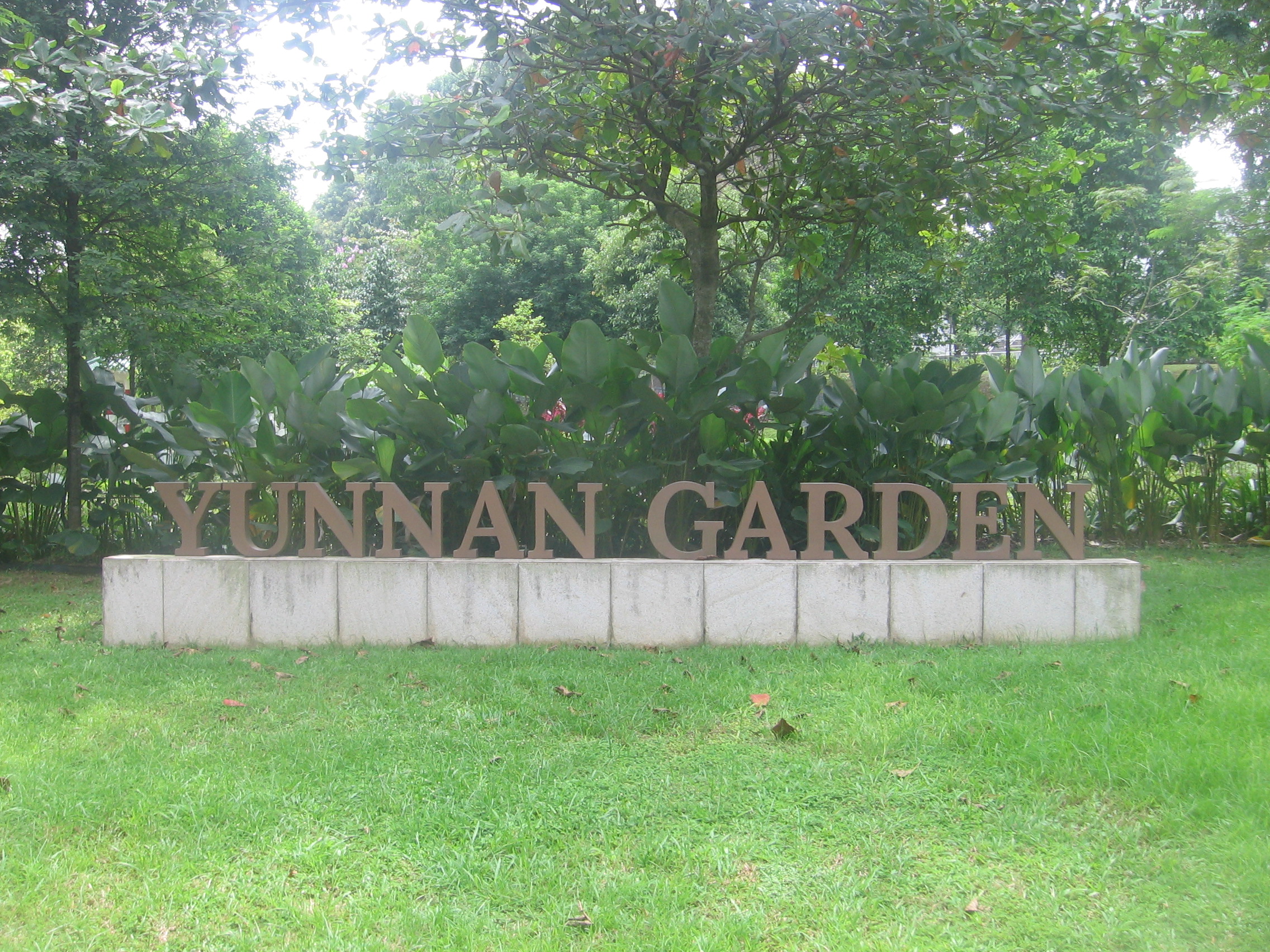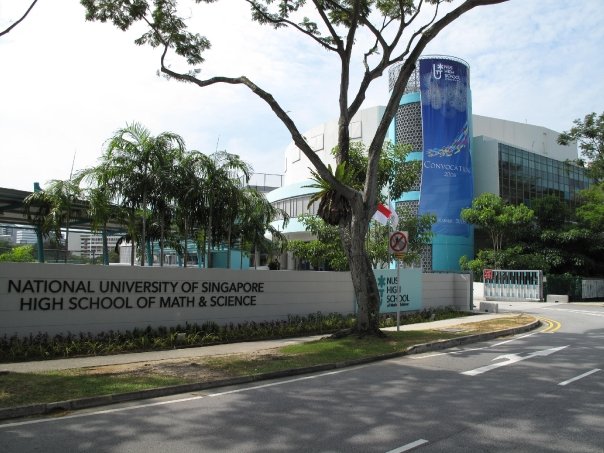|
TUM Asia
The German Institute of Science and Technology – TUM Asia is an institute for research and education located in Singapore, formed in 2002 as the Asian campus of the Technical University of Munich. Background GIST-TUM Asia was set up in Singapore in 2002, under the Singapore government's Global Schoolhouse Initiative. GIST-TUM Asia currently offers 5 Master of Science programmes, MSc in Industrial Chemistry; MSc in Integrated Circuit Design; MSc in Green Electronics; MSc in Aerospace Engineering; and MSc in Transport and Logistics. The former three programmes are run jointly with either Nanyang Technological University (NTU) or National University of Singapore (NUS) and the latter two programmes are pure TUM programmes. GIST-TUM Asia then partnered Singapore Institute of Technology The Singapore Institute of Technology (SIT or Singaporetech) is a public autonomous university in Singapore. The university offers industry-focused, applied degree programmes; it confers i ... [...More Info...] [...Related Items...] OR: [Wikipedia] [Google] [Baidu] |
Technical University Of Munich
The Technical University of Munich (TUM or TU Munich; ) is a public research university in Munich, Bavaria, Germany. It specializes in engineering, technology, medicine, and applied and natural sciences. Established in 1868 by King Ludwig II of Bavaria, the university now has additional campuses in Garching, Freising, Heilbronn, Straubing, and Singapore, with the Garching campus being its largest. The university is organized into seven schools, and is supported by numerous research centers. It is one of the largest universities in Germany, with 52,931 students and an annual budget of €1,892.9 million including the university hospital. A ''University of Excellence'' under the German Universities Excellence Initiative, TUM is among the leading universities in the European Union. Its researchers and alumni include 18 Nobel laureates and 24 Leibniz Prize winners. History 19th century In 1868, King Ludwig II of Bavaria founded the ''Polytechnische Schule München'' w ... [...More Info...] [...Related Items...] OR: [Wikipedia] [Google] [Baidu] |
Nanyang Technological University
Nanyang Technological University (NTU) is a public research university in Singapore. Founded in 1981, it is also the second oldest autonomous university in the country. The university is organised across numerous colleges and schools, including the College of Engineering, College of Science, Nanyang Business School, Lee Kong Chian School of Medicine, College of Humanities, Arts and Social Sciences, College of Computing and Data Science, Graduate College, National Institute of Education, and S. Rajaratnam School of International Studies. NTU is also home to two Research Centres of Excellence – the Singapore Centre on Environmental Life Sciences Engineering, and Institute for Digital Molecular Analytics and Science, and many University Research Institutes such as Earth Observatory of Science (which was a Research Centre of Excellence from June 2008 to June 2023, and transitioned to a University Research Institute in July 2023). NTU's main campus covers of land, making it t ... [...More Info...] [...Related Items...] OR: [Wikipedia] [Google] [Baidu] |
National University Of Singapore
The National University of Singapore (NUS) is a national university, national Public university, public research university in Singapore. It was officially established in 1980 by the merging of the University of Singapore and Nanyang University. The university offers degree programmes in disciplines at both the undergraduate and postgraduate levels, including in the sciences, medicine and dentistry, design and environment, law, arts and social sciences, engineering, business, computing, and music. NUS's main campus is located adjacent to the Kent Ridge subzone of Queenstown, Singapore, Queenstown. The Duke–NUS Medical School is located at the Outram, Singapore, Outram campus. The Bukit Timah campus houses the National University of Singapore Faculty of Law, Faculty of Law and Lee Kuan Yew School of Public Policy. NUS's affiliated faculty members and researchers include one Nobel Prize laureate, one Tang Prize laureate, and one Vautrin Lud Prize, Vautrin Lud laureate. History ... [...More Info...] [...Related Items...] OR: [Wikipedia] [Google] [Baidu] |
Singapore Institute Of Technology
The Singapore Institute of Technology (SIT or Singaporetech) is a public autonomous university in Singapore. The university offers industry-focused, applied degree programmes; it confers its own degree programmes as well as specialised degree programmes with overseas universities. The university's degree programmes are grouped into five clusters: Engineering (ENG), Food, Chemical and Biotechnology (FCB), Infocomm Technology (ICT), Health and Social Sciences (HSS), and Business, Communication and Design (BCD). The university's campus is located at 1 Punggol Coast Road in Punggol, within the North-East Region of the country. The centralised campus in Punggol is next to the new Punggol Coast MRT station. The university will be integrated with Punggol Digital District built by JTC Corporation in Punggol Downtown and Northshore district. History Beginnings In 2005, the Polytechnic-Foreign Specialised Institutions (Poly-FSI) initiative was introduced by the Ministry of Educa ... [...More Info...] [...Related Items...] OR: [Wikipedia] [Google] [Baidu] |
Research Institutes In Singapore
Research is creative and systematic work undertaken to increase the stock of knowledge. It involves the collection, organization, and analysis of evidence to increase understanding of a topic, characterized by a particular attentiveness to controlling sources of bias and error. These activities are characterized by accounting and controlling for biases. A research project may be an expansion of past work in the field. To test the validity of instruments, procedures, or experiments, research may replicate elements of prior projects or the project as a whole. The primary purposes of basic research (as opposed to applied research) are documentation, discovery, interpretation, and the research and development (R&D) of methods and systems for the advancement of human knowledge. Approaches to research depend on epistemologies, which vary considerably both within and between humanities and sciences. There are several forms of research: scientific, humanities, artistic, economic, s ... [...More Info...] [...Related Items...] OR: [Wikipedia] [Google] [Baidu] |
International Research Institutes
International is an adjective (also used as a noun) meaning "between nations". International may also refer to: Music Albums * ''International'' (Kevin Michael album), 2011 * ''International'' (New Order album), 2002 * ''International'' (The Three Degrees album), 1975 *''International'', 2018 album by L'Algérino Songs * The Internationale, the left-wing anthem * "International" (Chase & Status song), 2014 * "International", by Adventures in Stereo from ''Monomania'', 2000 * "International", by Brass Construction from ''Renegades'', 1984 * "International", by Thomas Leer from ''The Scale of Ten'', 1985 * "International", by Kevin Michael from ''International'' (Kevin Michael album), 2011 * "International", by McGuinness Flint from ''McGuinness Flint'', 1970 * "International", by Orchestral Manoeuvres in the Dark from '' Dazzle Ships'', 1983 * "International (Serious)", by Estelle from '' All of Me'', 2012 Politics * Internationalism (politics) * Political international, ... [...More Info...] [...Related Items...] OR: [Wikipedia] [Google] [Baidu] |
Engineering Universities And Colleges
Engineering is the practice of using natural science, mathematics, and the engineering design process to solve problems within technology, increase efficiency and productivity, and improve systems. Modern engineering comprises many subfields which include designing and improving infrastructure, machinery, vehicles, electronics, materials, and energy systems. The discipline of engineering encompasses a broad range of more specialized fields of engineering, each with a more specific emphasis for applications of mathematics and science. See glossary of engineering. The word ''engineering'' is derived from the Latin . Definition The American Engineers' Council for Professional Development (the predecessor of the Accreditation Board for Engineering and Technology aka ABET) has defined "engineering" as: History Engineering has existed since ancient times, when humans devised inventions such as the wedge, lever, wheel and pulley, etc. The term ''engineering'' is derived f ... [...More Info...] [...Related Items...] OR: [Wikipedia] [Google] [Baidu] |
Germany–Singapore Relations
Germany–Singapore relations refer to the bilateral relations between the Federal Republic of Germany and the Republic of Singapore. History A major impact made by Germany in modern history took place when the SMS Emden raided the South and Southeast Asia region during World War I. The light cruiser had made a daring raid of the British port of Penang soon after the war started, and brought the Malay Peninsula into the war. Following the Cold War between the 1970s and 1980s, West Germany Chancellor Helmut Schmidt maintained close ties with Singapore Prime Minister Lee Kuan Yew. An orchid hybrid was also named after Mrs Hannelore "Loki" Schmidt when she visited the Singapore Botanic Gardens in 1978. Bilateral relations Singapore and Germany began building relations more publicly after the breakup of the communist Soviet Union and the fall of the Iron Curtain that saw the unification of East Germany and West Germany. On 10 August 1973, Singapore built the relations of East Ge ... [...More Info...] [...Related Items...] OR: [Wikipedia] [Google] [Baidu] |
Private Universities In Singapore
Private universities and private colleges are higher education institutions not operated, owned, or institutionally funded by governments. However, they often receive tax breaks, public student loans, and government grants. Depending on the country, private universities may be subject to government regulations. Private universities may be contrasted with public universities and national universities which are either operated, owned or institutionally funded by governments. Additionally, many private universities operate as nonprofit organizations. Across the world, different countries have different regulations regarding accreditation for private universities and as such, private universities are more common in some countries than in others. Some countries do not have any private universities at all. Africa Egypt Egypt currently has 21 public universities with about two million students and 23 private universities with 60,000 students. Egypt has many private universities in ... [...More Info...] [...Related Items...] OR: [Wikipedia] [Google] [Baidu] |








